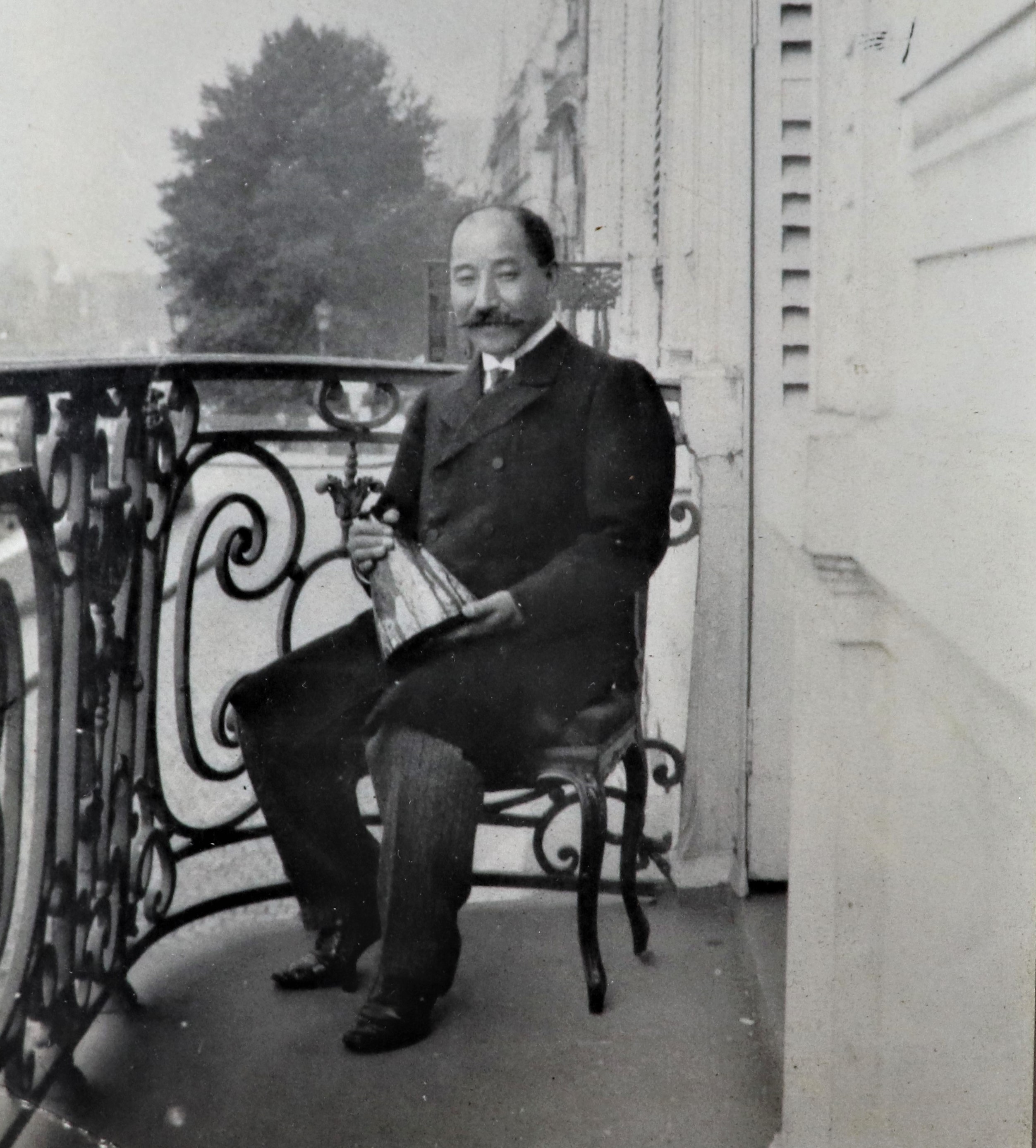On Hayashi Tadamasa
Hayashi Tadamasa (1853-1906)
Hayashi Tadamasa was born in Takaoka, Toyama prefecture, in 1853. His grandfather and his father are both Dutch-style doctors. Having been raised in that intellectual context, he moved to Tokyo in 1871 and entered Nanko (the Western Learning College, now part of the University of Tokyo), where he studied French. In 1878, he attended the third Paris International Exposition as an employee of Kiryu Kosho Kaisha, serving as an interpreter. That experience led to his deciding to stay in Paris, where he opened a shop dealing in art and craft works. He did more than, as an art dealer, sell paintings, ukiyo-e, craft works, and other objects from Japan. He applied his rich knowledge and linguistic ability to introduce the culture and arts of Japan to intellectuals, critics, and artists in Europe, spurring the rise of Japonisme.

Portrait of Hayashi Tadamasa on Balcony of Koechlin’s Residence (1903)
On the Collection of Letters to Hayashi
This collection of letters consists mainly of letters that Hayashi received during the twenty-seven years between 1884, when he opened his art store at no. 7 Cité d’Hauteville, Paris, and 1905, when he returned to Japan, where he died a year later. They include letters to him from late nineteenth century lovers of Japanese art, including the writer Edmond de Goncourt (1822-1896), the art dealer Alphonse Portier (1841-1902), the jeweler Henri Vever (1854-1942), the ethnologist Ernst Grosse (1862-1927), and the collector, who was also secretary-general of the Société des amis du Louvre, Raymond Koechlin (1860-1931). The collection also includes related letters and other documents, letters and memoranda that Hayashi wrote, and other reference materials. The collection is owned by the Tokyo National Research Institute for Cultural Properties and has been on deposit with the National Museum of Western Art since 2016.

Letters to Hayashi Tadamasa
